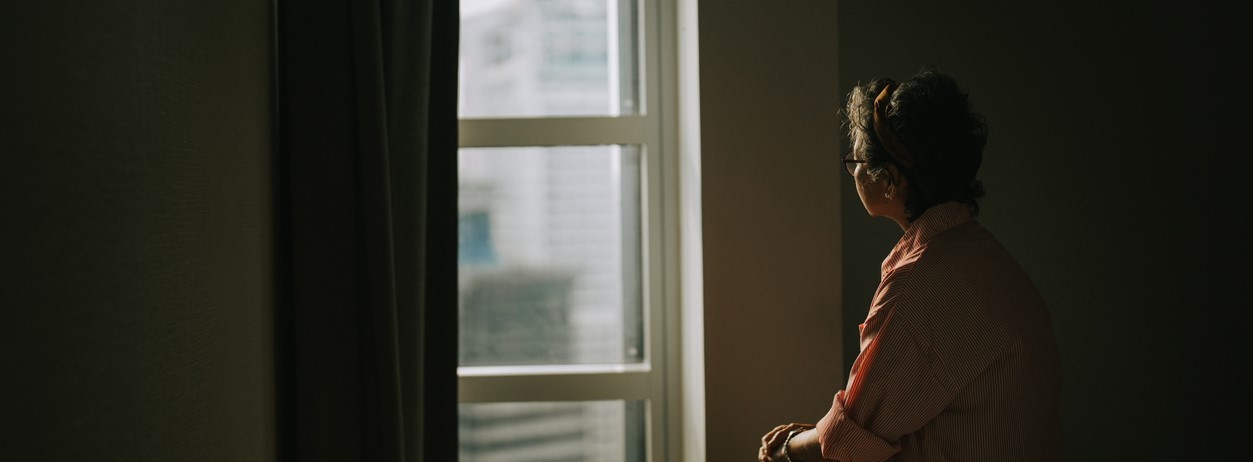The Scottish government says that Scotland has “a troubled relationship” with both alcohol and drug use.
Recent figures showed that, on average, every adult in the country is drinking 36% more than the UK-wide lower-risk guidelines on alcohol, while there are estimated to be somewhere between 55,800 to 58,900 ‘problem’ drug users.1
Not every drinker or drug user is an addict but it can be a very slippery slope, and substance misuse can easily spiral into dependency and addiction. Once it does, it can be very difficult to break free from drug or alcohol addiction and the destructive behaviour patterns that accompany it.
Addiction can be successfully treated, however, and our scientific understanding of the condition has made huge strides over recent years. A programme of evidence-based treatments delivered by qualified experts in the secure environment of a rehab centre has been shown to be the single most effective way of treating serious addiction problems.
What Happens if You Don’t Treat Your Addiction?
Drugs and alcohol can cause a wide range of harm – both to the user and those around them. Intoxication brings increased risks of accidents, poor decision-making and in some cases, violence and criminal behaviour. Addiction is also heavily linked to crime, especially in terms of funding continued access to drugs and/or alcohol.
An unchecked addiction can put a huge strain on families and other relationships. It can affect your work, education and pretty much every aspect of your life. It can also have a huge impact on your physical and mental health.
Alcohol misuse is the biggest risk factor for death, ill-health and disability among 15-49 year-olds in the UK, and the fifth biggest risk factor across all ages.2 Other drugs are not as prevalent or easily accessible as alcohol but can still be very detrimental to the user’s health.
As well as long and short-term risks, the addiction itself can get more severe over time. Addiction essentially rewires the way your brain works, affecting areas involved in reward, pleasure and impulse control.
As your dependency grows, you risk experiencing severe physical and psychological withdrawal symptoms when you do not drink or use drugs. You can also build up a tolerance to the drug, meaning you need to use more and more of it to get the same ‘hit’ and sometimes just to feel normal.
Finding Alcohol and Drug Treatment in Penicuik
If you have an addiction problem, or have a friend or family member struggling with these issues, it may be time to look for professional help.
There are outpatient drug and alcohol services available via the NHS and these have some obvious advantages – mainly in terms of the cost and not having to take time out from your life if you have family, work or other commitments.
An addiction can seriously affect those commitments however, and the most effective way to treat addiction is generally through a stay at a residential inpatient rehab. This puts you in a specialist environment away from the people and places associated with your drinking or drug use, where you can really focus on your recovery.
You will have access to round-the-clock support and care and will receive a tailored programme of treatments designed to address every aspect of your substance misuse, addiction and associated behaviours.
Choosing Rehab Away From Home
Whether you’re looking for rehab in Penicuik, Glasgow, Edinburgh or further afield, we can help you to find the right place for you. Sometimes, it isn’t just about finding the nearest place but the one that fits your own individual circumstances and needs.
Remember, you will be staying in the rehab as a resident so it doesn’t always matter exactly where it is located. Some people actually feel more comfortable being a long physical distance from their usual situation, while others prefer to stay reasonably close.
There are a number of things to consider when looking for a rehab, including the facilities (are you looking for luxurious or just comfortable?), the exact programme of treatments available, the experience of the staff and the cost.
If you’re considering rehab, we can answer any queries you might have and provide you with all the information you need. Contact us today to find out more.
What Type of Care is Offered in Rehab?
At Nova Recovery, we offer 1:1 support from clinical nurse practitioners, registered mental health nurses and therapists, as well as access to trained psychiatrists and 24-hour nursing care where needed. We also provide a detox programme assisted by leading medical experts and nursing practitioners.
Detox, or detoxification, is when you process the drugs or alcohol already in your system – essentially the point at which you sober up. This can be accompanied by intense cravings and severe withdrawal symptoms, which is why it is always best to undergo detox in a clinically supervised setting.
The exact nature of the withdrawal symptoms can vary widely from one individual to the next, depending on the substance involved and other factors. Despite the fact that it is a legal drug, for example, alcohol can lead to some particularly severe withdrawal symptoms.
The most severe manifestation, delirium tremens (‘the DTs’) is considered a medical emergency and can involve extremely high blood pressure, tremors, hallucinations and seizures.
Drug and alcohol detoxification medications may be prescribed to manage symptoms and reduce future relapse risks, but only where this is deemed appropriate by our trained clinicians.
What Happens After Detox?
Cleaning up via detox is an important part of any recovery, but it is only a part. You also need to learn how to remain clean and sober moving forward and this involves changing the way you think and behave around drugs and alcohol.
Cognitive behavioural therapy (CBT) is incredibly valuable in this regard, which is why it is a cornerstone of our clinically-led recovery programmes. Other therapies available include:
- Dialectical behavioural therapy (DBT)
- Motivational interviewing
- Group therapy and support groups
- One-to-one psychotherapy sessions
- Stress management
- Mental health treatments
We also offer a full one-year aftercare package to provide support in the vital months following your stay in rehab.
Contact us today to find out more about how we can help you move forward into a healthier life free from addiction.
Sources
1 https://www.gov.scot/policies/alcohol-and-drugs/
2 https://alcoholchange.org.uk/alcohol-facts/fact-sheets/alcohol-statistics
Frequently Asked Questions
What is inpatient treatment like?
Inpatient treatment, due to the fact that you reside full-time at the place where you are receiving treatment, is a very intensive form of treatment. You will receive around-the-clock medical care from the comfort of a top-quality private bedroom. We will also provide you with three home-cooked nutritious meals prepared by our kitchen staff each day, as well as constant support.
How do I begin my addiction recovery?
Beginning your journey of recovery starts by admitting to yourself that you have a problem with addiction and that you need professional help. Once you have made the realisation that professional addiction treatment will get you back to living the life that you want to live then all you need to do is reach out to our admissions team here at Nova Recovery. We will find the best treatment plan for you and get you on your way to a life of sobriety.
What is life like after rehab?
Life after rehab can be very difficult at first as it is a big transition to make. In residential rehab, you are surrounded by constant support in a comfortable and safe facility, which is often unlike your home environment. This is why we offer 12 months of free aftercare to ensure that you continue to be supported.


